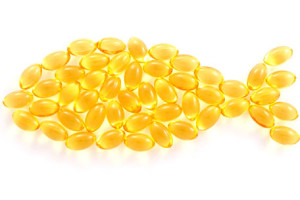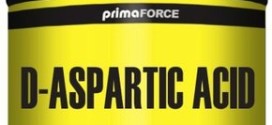Supplement Ingredient Guide: Fish Oils/Essential Fatty acids

What is it?
Fish oils is a common term which generally refers to two fatty acids, eicosapentaenoic acid (EPA) and docosahexaenoic acid (DHA) which are commonly found in fish, along with other animal products and plankton.
Indications
Fish oils have been shown to effectively reduce blood pressure, inflammation, control cholesterol and triglyceride levels. It is worth noting that 72% of published data showed that fish oil supplementation has no effect on weight, muscle soreness nor VO2 max.
How much should I take?
If you decide to use fish oils/fatty acids then it’s advised that you take between 500mg to 800mg of combined DHA and EPA per day. DHA and EPA are the main active ingredients which are most beneficial to the body out of the fish oil extracts, so make sure you get the right amount of DHA and EPA.
Research
It is proposed that most essential fats work on the body by reducing inflammation which leads to a decrease in the likelihood of developing a chronic condition. Looking at fish oils in detail they work by inhibiting some of the inflammatory enzymes but also activating genes that cause the relaxation of smooth muscles which leads to a net reduction in inflammation.
Another way fish oil helps benefit your health is by forming a more lenient, flexible lining of the blood vessels. This is a much better way to line them in comparison to more hardened fats such as saturated and trans fats. This reduces the chance of them clogging up which is great for reducing the risk of atherosclerosis.
Evidence surrounding the ability of fish oil to burn fat are overwhelming. Research into fish oil has consistently shown that its a legitimate fat burner which works all over the body. A recent paper published even went as far as saying that supplementation with fish oil causes the body to burn 3 times more fat in comparison to exercising alone!! It’s been proposed that this is done by blocking the enzymes responsible for storing fat.
Fish oils have been shown to make the brain function better too, this results in the person feeling better since the brain starts to produce hormones such as dopamine. A lot of research has been shown to link fish oil supplementation with treatment of depression. In fact it’s very commonly prescribed over common antidepressants with a proven track record.
Like all the above uses for fish oils, they have also been shown to reduce the blood levels of cholesterol by reducing the amount of triglycerides going throughout the body.
A combination of exercise and fish oil supplementation has shown to boost levels of HDL which is the good form of cholesterol within the body. Which is great news for those after maintaining a healthy lifestyle since it reduces the risk of developing cardiovascular disease.
Side effects
There are no major side effects associated with fish oils since people can tolerate it well, unless you’re on any anti-coagulants (blood thinners). The only other concern is an allergy to fish or fish oils which may cause a reaction if consumed. Other than that it’s fairly safe to take them.
References
1. Wang C, Harris WS. n-3 Fatty acids from fish or fish-oil supplements, but not alphalinolenic acid, benefit cardiovascular disease outcomes in primary- and secondaryprevention studies: a systematic review. Am J Clin Nutr. 2006 Jul;84(1):5-17.
2. Hill AM, Buckley JD, Murphy KJ, Howe PRC. Combining fish-oil supplements with regular aerobic exercise improves body composition and cardiovascular disease risk factors. Am J of Clin Nutr 2007; 85 (5): 1267-74
3. Belzung, F, Raclot T, Groscolas R. Fish oil n-3 fatty acids selectively limit the hypertrophy of abdominal fat depots in growing rats fed high-fat diets. Am J Physiol Regul Integr Comp Physiol 1993; 264 (6): R1111-R1118
4. Stoll AL, Severus WE, Freeman MP, Rueter S, Zboyan HA, Diamond E, Cress KK, Marangell LB. Omega 3 Fatty Acids in Bipolar Disorder. Arc of Gen Psych 1999; 56:407-12
5. Kris-Etherton PM, Harris WS, Appel LJ. Fish Consumption, Fish Oil, Omega-3 Fatty Acids, and Cardiovascular Disease. Circulation 2002; 160: 2747
 Supplement Judge Unbiased Supplement Reviews – Do they really work??
Supplement Judge Unbiased Supplement Reviews – Do they really work??





[…] oil-rich fish is loaded with omega-3 fatty acids that are well-known for their ability to reduce the body's production of inflammatory […]